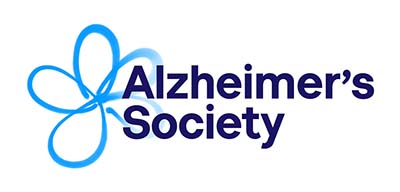National Day of Arts in Care Homes
The month of September has seen care homes throughout the UK – and this year across the globe – get creative and celebrate National Day of Arts in Care Homes. This is an annual event that takes place on 24th September to increase arts engagement in care settings and promote the benefits to the health and well-being of all those who take part.
This year’s National Day of Arts in Care Homes has had an international theme, with participation encouraged from all around the world. This is to help develop a global network where residents, staff, families and friends can share ideas on how to engage with the arts and tell stories of how they have seen the benefits.
How did the National Day of Arts in Care Homes start?
This annual event is led by the National Activity Providers Association (NAPA), which is the UK’s leading activity and engagement charity. They provide care services with support to “prioritise wellbeing and promote activity, arts and engagement”. This includes care homes, home care providers, intermediate and respite care, and many more.
How can care homes increase art engagement?
There is a wide range of art forms residents can take part in – cooking, singing, dancing, music, crafts, to name just a few! It’s a great opportunity to don a creative cap and think up some fun, engaging activities for people to get involved with, such as:
- Quilt making
- Singalongs
- Bake off competitions
- Scrapbook making
- Exercise sessions
- Sensory interaction
- Role play, e.g. caring for dolls, dressing up in clothes from the past
- Memory walls with images of famous people from the past, landmarks and locations
Get those living in the care settings involved in the planning and decision making by asking what they would like to do and finding out if there are any creative dreams they haven’t yet managed to fulfil. This could be to recite a poem, play an instrument to an audience or to learn a new skill such as knitting or embroidery. This also gives residents the chance to teach others a new skill that they have a passion for, giving them a sense of purpose and boosting their confidence.
What are some theme ideas?
This year, NAPA has aimed to connect care settings across the globe to create an international #FieldofFlowers where people can produce drawings, paintings, photographs or even 3D models of flowers. They can then share the photographs online using #AICH2022 #FieldofFlowers so people across the world can link up and see the different contributions.
For 2022’s international theme, care settings might choose to centre their celebrations around different nationalities and cultural backgrounds; this could involve food, costumes, crafts, decorations, and much more!
Other themes you might choose to take inspiration from are:
- Seasons
- Interests and hobbies
- Memories
- Animals
- Nature
What are the benefits of art in a care home?
Choosing a theme gives residents of a care home something to focus on and work towards, helping to improve their cognitive functioning, creative thinking and memory.
Touching different ingredients, painting different textures, listening to different music and tasting new foods will stimulate the senses and can trigger positive emotions and memories.
Collaborating with other care home residents creates a sense of community and helps improve social and communication skills. Some might usually be introverted and only interact briefly with others, but expressing themselves through the arts, such as singing, dancing or poetry, can open up a form of communication for them.
Activities such as creating a memory wall and scrapbook making can really help those with dementia as they look through photos and retell stories from the past. This can enhance people’s emotional well-being, helping to combat stress and anxiety.
At Bondcare, each of our care homes across the UK has a full weekly schedule of activities to keep residents entertained, active and inspired all year round. By investing in different ways to increase arts engagement at our homes, we see our residents gain more independence and improve their general well-being.





